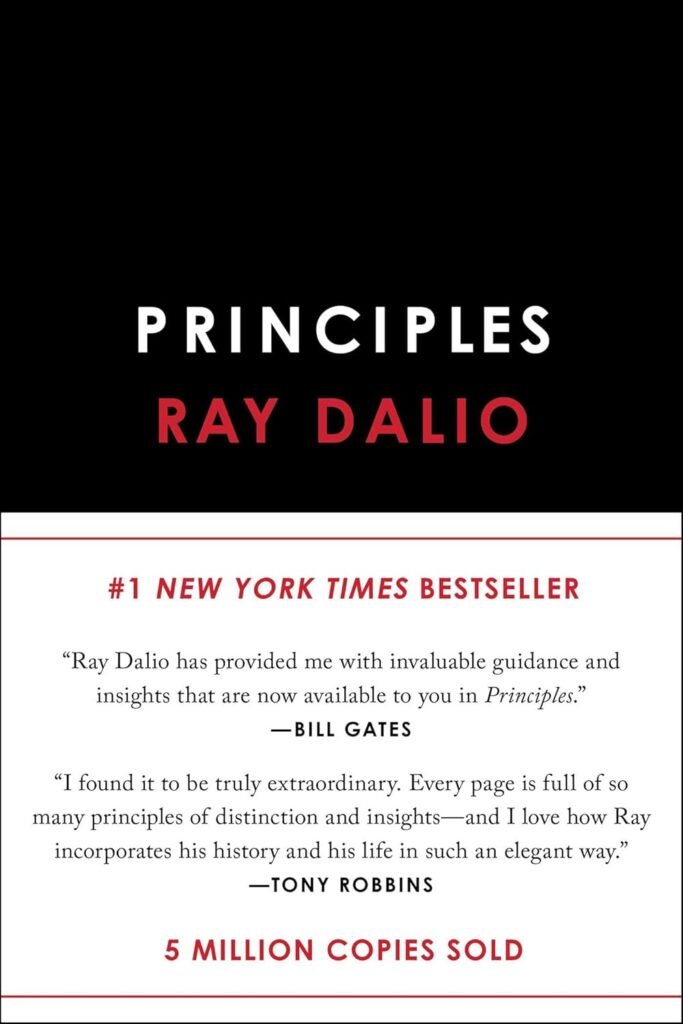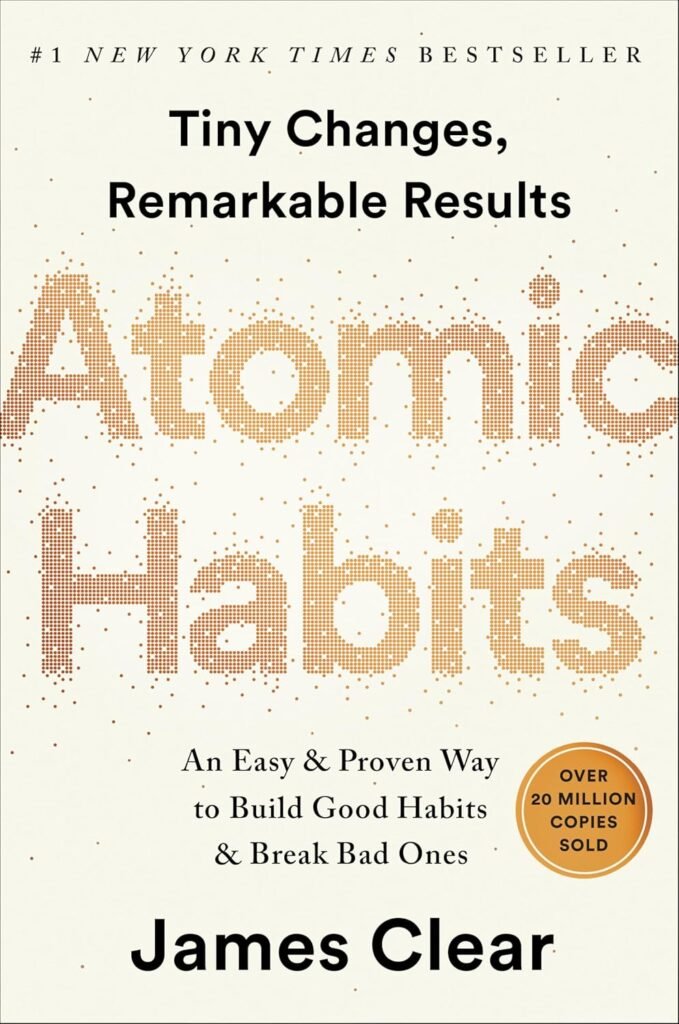10 Must-Read Books to Build Wealth and Financial Freedom
Building a mindset geared towards success and financial freedom often begins with the right resources. Books are valuable tools that can provide insights and strategies from those who have achieved remarkable financial success. By exploring these books, you can learn from the experiences of experts and apply their lessons to your own journey and build a wealth-creating mindset.
Here is the list of Top 10 Must-read Books to equip you in your path to Wealth and Financial Freedom. Check them out on Amazon below or listen to them in Audible.
| Book Title | Goodreads Ranking |
|---|---|
| 1. ‘Think and Grow Rich‘ by Napoleon Hill | 4.2/5 – 344,695 ratings |
| 2. ‘Rich Dad Poor Dad‘ by Robert Kiyosaki | 4.1/5 – 649,581 ratings |
| 3. ‘The Millionaire Fastlane‘ by MJ DeMarco | 4.1/5 – 22,604 ratings |
| 4. ‘The Intelligent Investor‘ by Benjamin Graham | 4.3/5 – 136,106 ratings |
| 5. ‘Principles: Life and Work‘ by Ray Dalio | 4.1/5 – 60,612 ratings |
| 6. ‘You Are a Badass at Making Money‘ by Jen Sincero | 3.9/5 – 32,127 ratings |
| 7. ‘The Richest Man in Babylon‘ by George S. Clason | 4.3/5 – 215,355 ratings |
| 8. ‘The 10X Rule‘ by Grant Cardone | 3.9/5 – 27,637 ratings |
| 9. ‘Atomic Habits‘ by James Clear | 4.4/5 – 993,421 ratings |
| 10. ‘The Total Money Makeover‘ by Dave Ramsey | 4.2/5 – 92657 ratings |
By choosing to read thoughtfully curated books, you set yourself on a path to developing a mindset that can transform your financial future. These books can serve as mentors, helping you to understand different perspectives and approaches to wealth creation. Through reading, you engage with ideas and strategies that have been tried and tested by successful individuals.
1. ‘Think and Grow Rich’ by Napoleon Hill

Find on Amazon: “Think and Grow Rich”
You explore strategies for personal development to achieve financial success in ‘Think and Grow Rich’ by Napoleon Hill. This book emphasizes the power of thought and belief in manifesting wealth and success. Hill shares principles like desire, faith, and persistence, which are seen as critical components in the journey toward financial freedom.
Throughout the book, you’ll encounter anecdotes and insights from successful figures. These stories illustrate how consistent thinking patterns can lead to prosperity. The material challenges you to harness your imagination and organize plans for achieving ambitious goals.
Practical guidance on decision-making and organized planning forms the core of the book. You’ll find actionable advice encouraging you to take consistent steps toward wealth-building. This approach helps instill confidence, allowing you to focus energy on productive tasks.
The focus is on transforming your mindset, encouraging you to adopt habits that align with long-term financial success. This resource inspires individuals seeking to shift their perspective on success and wealth.
2. ‘Rich Dad Poor Dad’ by Robert T. Kiyosaki

Find on Amazon: Rich Dad Poor Dad
This book explores the contrasting philosophies between two father figures in Kiyosaki’s life. Your perspective on money management and investment strategies will shift as you navigate these different approaches. You’ll discover practical lessons that are applicable to your financial journey.
Kiyosaki emphasizes the importance of financial education, which is often overlooked. You learn to differentiate between assets and liabilities and see how these distinctions impact your financial growth. This helps you build a solid foundation for wealth creation.
Through narrative storytelling, you gain insight into leveraging opportunities to increase income streams. By analyzing Kiyosaki’s experiences, you can identify potential paths to financial independence. The book encourages you to think creatively and take calculated risks.
The text challenges conventional beliefs about work and career. It inspires you to adopt an entrepreneurial mindset, which can lead to greater financial freedom. This mindset is crucial for achieving long-term wealth and success.
In essence, ‘Rich Dad Poor Dad’ provides insights that empower you to transform your financial habits. Incorporate its teachings into your daily life to make informed financial decisions. Absorb its lessons to foster a mindset primed for success.
3. ‘The Millionaire Fastlane’ by MJ DeMarco

Find on Amazon: The Millionaire Fast Lane
You will explore how to achieve financial independence and wealth through unconventional means in ‘The Millionaire Fastlane.’ MJ DeMarco presents an alternative to the slow, traditional financial strategies often promoted by experts.
Instead of relying on typical methods, this book illustrates how you can accelerate your path to wealth. It emphasizes entrepreneurship as a powerful vehicle for achieving financial success.
DeMarco critiques the conventional “get rich slowly” rhetoric. He challenges you to reconsider widely accepted financial advice. His approach prioritizes creating scalable systems and businesses over long-term employment.
You will find practical insights on building and scaling businesses quickly. The book is dense with advice aimed at flipping the script on traditional wealth-building paths. It offers a mindset shift that encourages pursuing entrepreneurship.
DeMarco is candid about the challenges faced in entrepreneurship. Yet, he provides practical strategies to navigate these obstacles. You will grasp the importance of taking calculated risks and breaking free from the average financial narrative.
4. ‘The Intelligent Investor’ by Benjamin Graham

Find on Amazon: The Intelligent Investor
When seeking financial wisdom, ‘The Intelligent Investor’ by Benjamin Graham is a cornerstone. First published in 1949, this book provides timeless advice on value investing. Graham teaches you to develop strategies that minimize risk and maximize returns.
Investment psychology is a key component. You’ll learn to avoid emotional decision-making, a common pitfall in investing. Patience and discipline play crucial roles in Graham’s philosophy.
‘The Intelligent Investor’ introduces the concept of margin of safety. This principle guides you to purchase securities at prices significantly below their intrinsic value, offering a buffer against errors.
Understanding market fluctuations and capitalizing on them is another focus. Graham emphasizes viewing the market as a guide rather than a master. This helps you make informed decisions based on analysis rather than speculation.
5. ‘Principles: Life and Work’ by Ray Dalio

Find on Amazon: Principles: Life & Work
In “Principles: Life and Work,” Ray Dalio shares insights from his successful career and unique approach to decision-making. The book breaks down complex ideas into actionable principles that you can apply to both life and business. Dalio attributes his extraordinary success to these fundamental principles.
You’ll find practical advice on cultivating transparency, honesty, and meaningful relationships. Dalio emphasizes the importance of understanding your own strengths and weaknesses. By doing so, you can make better decisions and navigate life’s challenges more effectively.
The book encourages a systematic approach to problem-solving, advocating for algorithms and data-backed decisions. Dalio’s innovative methodology has been influential in his success as a founder of Bridgewater Associates. Applying these principles helps cultivate a strong foundation for achieving financial freedom.
Dalio’s emphasis on radical transparency and organizational efficiency is transformative. He challenges you to rethink traditional structures and encourages you to seek constant improvement. This mindset can be a powerful tool in your journey to building wealth and achieving financial success.
6. ‘You Are a Badass at Making Money’ by Jen Sincero

Find on Amazon: You are a Badass at Making Money
Jen Sincero offers a bold and practical take on transforming your financial life with her book, ‘You Are a Badass at Making Money.’ The book explores personal stories and practical exercises designed to shift your mindset and strategies around money. As you go through the insights, you find actionable ways to identify and change your limiting beliefs about wealth.
Sincero emphasizes the importance of aligning your thoughts and actions to achieve prosperity. She blends humor with straightforward advice, motivating you to foster a proactive attitude toward financial success. This approach makes it accessible and engaging, especially for those ready to address their financial challenges head-on.
You will also encounter practical exercises to guide you in setting intentions, acknowledging your fears, and taking decisive action to build wealth. These activities aim to reinforce positive habits and develop a healthy relationship with money.
7. ‘The Richest Man in Babylon’ by George S. Clason

Find on Amazon: The Richest Man in Babylon
This classic book offers invaluable lessons on wealth and financial independence through engaging parables. Set in ancient Babylon, it imparts timeless wisdom through stories that emphasize the importance of saving, investing, and living within your means.
You’ll discover the principles of financial planning and how small habits can lead to substantial growth. Clason stresses the importance of paying yourself first, suggesting that a portion of your earnings be saved for future investment opportunities.
By applying these straightforward rules, you’ll understand fundamental strategies to accumulate wealth. These practical teachings can guide you in making informed financial decisions and building a foundation for long-term prosperity.
The advice is timeless, proving that financial wisdom transcends eras and is applicable even today. Each parable provides insight into the human behaviors that influence our financial decisions and money management skills.
8. ‘The 10X Rule’ by Grant Cardone

‘The 10X Rule’ by Grant Cardone encourages you to multiply your goals and actions by ten. The core idea is to think and act on a grand scale. This strategy helps in overcoming limitations and achieving financial success.
Cardone argues that most people settle for average results. By aiming ten times higher, you increase your chances of reaching extraordinary levels of success. This mindset can be transformative for aspiring entrepreneurs and business leaders.
The book emphasizes maintaining consistent commitment. Cardone advises adopting a high level of action to withstand setbacks. This approach can ultimately lead you to achieve financial freedom.
The ranking on Goodreads for ‘The 10X Rule’ is as follows:
9. ‘Atomic Habits’ by James Clear

James Clear’s ‘Atomic Habits’ is a powerful guide that emphasizes the importance of small changes in achieving significant results. You learn how to focus on daily habits to create gradual yet profound improvements. Clear demonstrates that developing the right habits can lead to compounding improvements over time, influencing wealth creation and personal success.
In the book, you explore the concept of identity-based habits. By shifting your focus from goals to systems, you find that sustainable success comes from establishing processes and routines that align with your desired identity. This mindset helps reinforce your long-term aspirations.
‘Atomic Habits’ also introduces practical strategies for forming good habits and breaking bad ones. Techniques like the 4-step habit loop and the 2-minute rule make it easier for you to implement new habits effectively.
Clear’s insights help you recognize the impact of immediate environment on habit formation. With actionable advice, you can optimize your surroundings to support your financial and personal goals. The emphasis on practical applications makes the lessons highly adaptable to various areas of your life.
10. ‘The Total Money Makeover’ by Dave Ramsey

Find on Amazon: the Total Money Makeover
Dave Ramsey’s ‘The Total Money Makeover’ offers actionable steps for achieving financial stability. You learn practical techniques for budgeting, saving, and increasing wealth. The book emphasizes a systematic approach to debt elimination and financial management.
One of the key strategies outlined is the seven-step plan, which helps you prioritize financial goals. These steps are designed to strengthen your fiscal discipline and guide you toward financial freedom. Ramsey’s advice is grounded in personal anecdotes and real-life examples.
The straightforward and motivational tone makes this book accessible to anyone seeking to improve their financial literacy. By focusing on habits and attitudes, Ramsey provides you with the tools necessary to transform your relationship with money.
Understanding the Billionaire Mindset
Developing a billionaire mindset involves embracing specific traits and thinking long-term. This mindset drives individuals towards wealth and financial freedom with determination and strategic outlook.
Key Traits and Characteristics
Successful billionaires often exhibit unique traits that set them apart. Resilience is crucial; encountering setbacks becomes a stepping stone rather than an obstacle. Curiosity propels them to question the status quo and seek innovative solutions.
Another characteristic is adaptability. The ability to pivot when facing new challenges is vital. Perseverance and focus allow them to stay committed to their visions. Self-discipline is key. Managing one’s time and resources effectively contributes significantly to achieving financial goals.
Confidence, not arrogance, is common among billionaires. They trust in their abilities and decisions, creating an aura of assurance that influences their outcomes.
The Power of Long-Term Thinking
Billionaires prioritize long-term vision over short-term gains. They understand that immediate success might not be as valuable as sustainable growth. This frame of mind helps in setting achievable milestones aligned with broader goals.
Patience plays a significant role. Strategic planning for future success requires resisting the lure of quick profits. By focusing on long-term benefits, they build robust foundations.
Furthermore, long-term thinkers often invest not just in businesses, but in relationships, skills, and knowledge, recognizing their enduring value. This mindset helps them weather economic fluctuations, ensuring that their wealth continues to grow despite market changes.
Principles of Wealth Creation
To achieve financial freedom, it’s essential to focus on generating multiple income streams and making wise investment choices. Both strategies play a crucial role in building and safeguarding your wealth.
Building Multiple Income Streams
Diversifying your income sources is key to financial resilience. Relying on a single income can be risky. You should explore various avenues to create multiple income streams. Consider options like starting a side business, investing in rental properties, or freelancing in your field of expertise.
An additional income stream can support your financial goals faster. It offers security against job loss or economic downturns. Leveraging your skills and interests is an effective way to expand your income. Moreover, it can lead to passive income opportunities, where money continues to come in with little day-to-day effort.
Creating diverse income streams requires diligent planning and execution. Utilize your skills creatively, optimize your time efficiently, and be open to new opportunities. Each stream should complement your overall financial strategy, enhancing both stability and growth.
Investing Wisely for the Future
Investing plays a fundamental role in wealth accumulation. You need to be informed and strategic about where to allocate your resources. Understand the fundamentals of stocks, bonds, real estate, or mutual funds. Each investment type carries different risks and benefits that can impact your financial journey.
Adopt a long-term perspective to maximize returns and minimize risk. Diversify your portfolio to mitigate potential losses. Stay informed about market trends and economic indicators to make educated decisions. It’s advisable to consult with financial advisors to tailor investment plans to your personal goals.
Investing isn’t about quick returns; it’s about sustainable growth. Set clear financial objectives and regularly monitor your progress. Reinvest returns to compound your wealth over time. With a strategic plan, investing can form the cornerstone of your wealth creation strategy.
Achieving Financial Freedom
Realizing financial freedom involves disciplined budgeting, strategic saving, and effectively overcoming barriers that arise.
Effective Budgeting and Saving Strategies
Creating a successful budget involves evaluating your income and expenses. Begin by listing all sources of income, then categorize expenses into necessities (such as housing and food) and discretionary spending (like entertainment).
Aim to follow the 50/30/20 rule: 50% for necessities, 30% for wants, and 20% for savings and debt repayment. Regularly reviewing and adjusting this plan is crucial to ensure it aligns with changing financial circumstances. Consistent saving habits can be achieved by automating transactions.
Consider establishing an emergency fund, where you save three to six months’ worth of living expenses. This acts as a financial safety net, preventing you from derailing your long-term financial goals. Investments in diversified assets like stocks and bonds can also fortify your financial foundation.
Overcoming Financial Obstacles
Identifying and managing debt is a vital step in overcoming financial hurdles. Prioritize paying down high-interest debts, such as credit cards, using approaches like the avalanche or snowball methods. The avalanche method involves paying off debts with the highest interest rates first, while the snowball focuses on settling the smallest debts initially for quick wins.
Building financial literacy is essential to navigate the modern financial landscape. This includes understanding credit scores, taxes, and investment principles. Regularly monitor credit reports for inaccuracies that may affect your credit rating.
Creating multiple income streams can also protect against potential setbacks. Engaging in side businesses, freelance work, or smart investments augments your primary income, offering additional security.
Related Articles:

